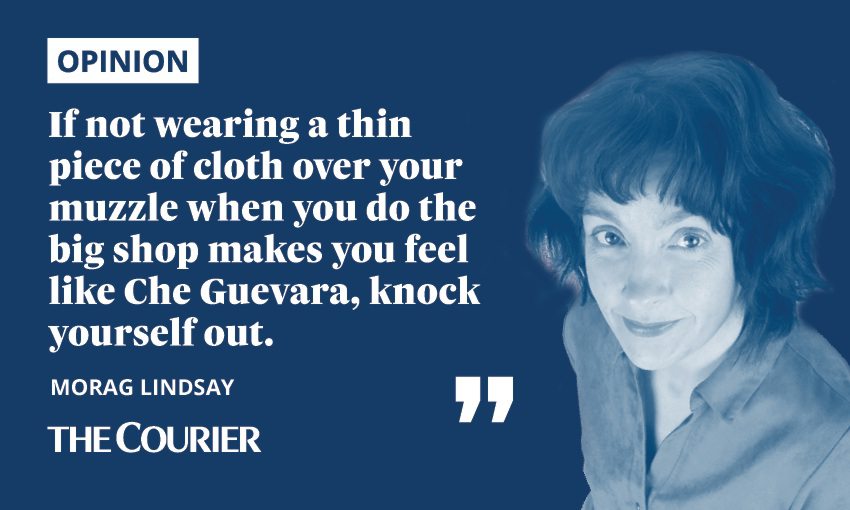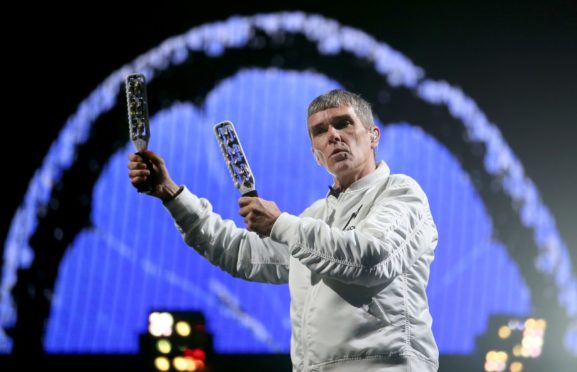Never meet your heroes, they used to say.
That was back in the days before we had to think about what’s allowed before we even meet our grans, of course.
Now “never find out what your heroes think about Covid restrictions in a 280-character tweet” might be more appropriate.
I say this after speaking to a colleague this week. A broken husk of a man.

He’d just learned Richard Ashcroft, whose songs provided the soundtrack to his adolescence, had pulled out of a music festival because of its involvement in Covid research.
The former lead singer of the Verve told fans on Instagram he had found out it was part of a government programme testing the spread of the virus at large-scale events.
As such, he declared, he would not be taking part.
My pal has already seen another idol, Stone Roses frontman Ian Brown, emerge as the frontman for the Covid deniers.
“Imagine bein tricked by nonce billionaires and their devil puppet minions into believing a piece of cloth over your cakehole could stop a virus! Arf!” he urged his 170,000 followers in one recent tweet.
Well imagine indeed.
Every singer and musician who plays an event requiring 'vaccination' with a gmo concoction still in experimental trials made by companies with indemnity is a wretch and a collaborator who deserves to be tarred and feathered
— Ian Brown (@ianbrown) June 21, 2021
I daren’t ask what my forlorn friend made of Right Said Fred back in the day.
The shiny-headed has-beens have also been turning Covid conspiracy into an art form.
And I’m pleased to say their new material appears to be every bit as accomplished as those era-defining bangers, I’m Too Sexy and Deeply Dippy.
One pompous tweet hitting out at mask wearers garnered more than 5,000 likes this week.
I would like to thank everyone who is still wearing a mask.
It saves me a great deal of time.
Your mask tells me I don’t need to talk to you, know you, work with you, or try to understand your mumblings.
You are superfluous to requirements.
Many thanks XX pic.twitter.com/qMOTJjf5hy— Right Said Fred (@TheFreds) July 4, 2021
Mind you, it also gained a slew of replies from people saying they were waiting to hear what Chumbawumba and Brotherhood of Man had to say before deciding.
So maybe there’s hope for humanity yet.
It was fun while it lasted, that “we’re all in this together” stage of Covid.
But now that Blitz spirit has been well and truly blitzed we are firmly in “whose side are you on” territory.
Masks a symbol of Covid divisions
Here, masks have become a very visible flag of allegiance.
Face coverings, we were always told, are there to protect the people around you, not the wearer.
But as we all start learning to live with Covid – those of us lucky enough to live at least – they will become optional in England on July 19.
I suspect that will make them a source of contention here until it’s confirmed Scotland is following suit.
July 19 has been labelled Freedom Day – when all the Freds and Karens are finally at liberty to throw off their symbols of state oppression and stick it to the man.
Never mind the great many vulnerable people, for whom public spaces will become no-go zones and whose freedom is shaping up to be collateral damage.
But hey if not wearing a thin piece of cloth over your muzzle when you do the big shop makes you feel like Che Guevara, knock yourself out.
What did you do in the Covid culture war?
When it all comes down to it, does it matter what fading pop stars have to say on the subject anyway?
It probably shouldn’t. But when their music and films and live shows are all tied up in your memories it’s hard to accept you probably wouldn’t hit it off if you met in the pub after all.
Separating the art from the artist is something fans of Michael Jackson, Woody Allen, Morrissey and others have all had to confront before now – often for more sinister reasons than being a tube about masks on social media.
Perhaps where you stood in the great Covid culture war will be the litmus test for our generation.
And perhaps the real winners will be the ones who kept their theories to themselves and left it to the experts to dispense public health advice.
There are plenty who have dodged the Covid conspiracy bandwagon altogether and instead use their public profile for good.
Think this is a very harsh take on the situation Piers https://t.co/rGuWC5ScDT
— Andy Murray (@andy_murray) July 6, 2021
When Piers Morgan barracked tennis starlet Emma Raducanu for pulling out of Wimbledon this week Andy Murray was one of the first to call him out.
The Scots legend suggested Morgan had been harsh for harassing a teenage girl who’d suffered breathing difficulties.
Mum Judy Murray then landed the knockout blow, subtweeting: “Middle-aged men should generally avoid commenting on the physical or mental well-being of teenage girls.”
Middle-aged men should generally avoid commenting on the physical or mental well-being of teenage girls.
They will NEVER experience or fully understand that world. pic.twitter.com/ZdWcpnsnvw— judy murray (@JudyMurray) July 6, 2021
The sainted Marcus Rashford was another one who leapt to Raducanu’s defence.
The Manchester United footballer tweeted the 18 year-old telling her he’d had a similar experience as a boy and the country is proud of her.
It happened to me playing for the national team in U16s against Wales. I remember it to this day. No explanation for it and it never happened again. You should be very proud of yourself. The country is proud of you. Glad to read your feeling better. Onwards and upwards 🎾🏴 https://t.co/sokkubBlLN
— Marcus Rashford MBE (@MarcusRashford) July 6, 2021
“Onwards and upwards”, Rashford urged her, thus cementing his status as official national treasure-in-waiting.
Maybe there is something to be said for the old days. When stars were photographed through flattering gauze and whole phalanxes of publicists were employed to keep their true personalities under wrap.
Or maybe we should take a telling and find ourselves better heroes.
